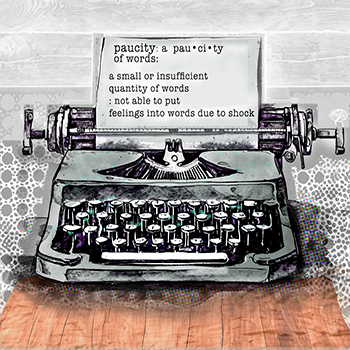A Paucity of Words:
A person experiencing a life-altering event will likely have a reaction of being frozen in their speech. We have many phrases that attempt to capture how it feels from the inside. Someone might say to you that their “jaw dropped” when they heard terrible news. They may say, I was “blown away” or “thunderstruck” or “I was a deer in the headlights.”
During trauma you can have two things happening at once. When a horrific event intrudes upon a person’s otherwise peaceful existence, — they may dissociate which means leaving reality for a time period. This is a mild episode of depersonalization. You can think of it this way: the person might say inside, “ If I stay here in my person there are ten huge decisions and ten huge reactions that this event demands of me in the immediate time frame.this is too much.”
Dissociation says “I must leave and get distance. The experience is akin to filming it while sitting on a steel beam that is suspended twenty feet above the wreck.
WHY PAUCITY?
A paucity of words can be part of dissociation or it may be understood as the * pre frontal cortex going off line. the victim is sure that the trauma is bigger than his logic so he sets logic aside in order to mobilize for a response of fleeing or fighting. Therefore, if you walk up to a trauma victim
and hope they will let the story spill out —you may be very disappointed by their stare and their lack of words. If they drop out punctuation or conjunctions like “and”, “but” or “then” don’t correct them. They are doing the best that can. They may only be able to say. “I can’t.” “I don’t know.” or “Oh, my God!” over and over again. That is the first dozen hour post trauma. Their paucity of words is strictly about brain functioning and the inability to fit this experience into their personal narrative. In my experience offering no words and only a few small gestures of support combine to be the best way to engage. Talking in full sentences will come in a few hours. Day Two.The victim of trauma has to rehearse in a slow manner every aspect of their new normal. They might assess each frightening part of how they feel and only reassemble a couple of the pieces of reality on the first day of the traumatic event.
—
In the left frontal lobe of the cortex of your brain, lies the Broca’s area. This area is largely responsible for your speech. Dr. Bessel Van Der Kolk has done extensive research on why trauma victims react the way they do when they’re presented with certain triggers, and he discovered that during flashbacks, a white spot would form in this area of the brain. This is the same area that is affected for stroke victims when they suffer from a stroke. As a result, they cannot speak, and the same is true for those who have undergone a traumatic event.
